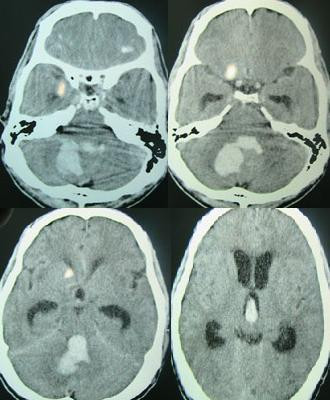|
Francis Ratcliffe
Francis Noble Ratcliffe OBE (11 January 1904 – 8 December 1970) was an Australian zoologist and conservationist. Ratcliffe was born a British citizen in Calcutta, India. He was educated at Berkhamsted School and the University of Oxford in the United Kingdom, and at Princeton University in the USA. After a short period working in London with the Empire Marketing Board, in 1929 he was brought to Australia by the CSIR to study flying-foxes in northern New South Wales and Queensland, afterwards returning to Britain to work in the zoology department at the University of Aberdeen. However, he returned to Australia permanently in 1935, working with the CSIR, and its successor the CSIRO, on such problems as wind erosion, termites and rabbit control. He was also a founder of the Australian Conservation Foundation The Australian Conservation Foundation (ACF) is Australia's national environmental organisation, launched in 1965 in response to a proposal by the World Wide Fu ... [...More Info...] [...Related Items...] OR: [Wikipedia] [Google] [Baidu] |
CSIRO ScienceImage 2233 Francis Ratcliffe 19041970
The Commonwealth Scientific and Industrial Research Organisation (CSIRO) is an Australian Government agency responsible for scientific research. CSIRO works with leading organisations around the world. From its headquarters in Canberra, CSIRO maintains more than 50 sites across Australia and in France, Chile and the United States, employing about 5,500 people. Federally funded scientific research began in Australia years ago. The Advisory Council of Science and Industry was established in 1916 but was hampered by insufficient available finance. In 1926 the research effort was reinvigorated by establishment of the Council for Scientific and Industrial Research (CSIR), which strengthened national science leadership and increased research funding. CSIR grew rapidly and achieved significant early successes. In 1949, further legislated changes included renaming the organisation as CSIRO. Notable developments by CSIRO have included the invention of atomic absorption spectroscopy, ... [...More Info...] [...Related Items...] OR: [Wikipedia] [Google] [Baidu] |
Queensland
) , nickname = Sunshine State , image_map = Queensland in Australia.svg , map_caption = Location of Queensland in Australia , subdivision_type = Country , subdivision_name = Australia , established_title = Before federation , established_date = Colony of Queensland , established_title2 = Separation from New South Wales , established_date2 = 6 June 1859 , established_title3 = Federation , established_date3 = 1 January 1901 , named_for = Queen Victoria , demonym = , capital = Brisbane , largest_city = capital , coordinates = , admin_center_type = Administration , admin_center = 77 local government areas , leader_title1 = Monarch , leader_name1 = Charles III , leader_title2 = Governor , leader_name2 = Jeannette Young , leader_title3 = Premier , leader_name3 = Annastacia Palaszczuk ( ALP) , legislature = Parliament of Queensland , judiciary = Supreme Court of Queensland , national_representation = Parliament of Australia , national_representation_t ... [...More Info...] [...Related Items...] OR: [Wikipedia] [Google] [Baidu] |
Australian Nature Writers
Australian(s) may refer to: Australia * Australia, a country * Australians, citizens of the Commonwealth of Australia ** European Australians ** Anglo-Celtic Australians, Australians descended principally from British colonists ** Aboriginal Australians, indigenous peoples of Australia as identified and defined within Australian law * Australia (continent) ** Indigenous Australians * Australian English, the dialect of the English language spoken in Australia * Australian Aboriginal languages * ''The Australian'', a newspaper * Australiana, things of Australian origins Other uses * Australian (horse), a racehorse * Australian, British Columbia, an unincorporated community in Canada See also * The Australian (other) * Australia (other) * * * Austrian (other) Austrian may refer to: * Austrians, someone from Austria or of Austrian descent ** Someone who is considered an Austrian citizen, see Austrian nationality law * Austrian German dialect * Somet ... [...More Info...] [...Related Items...] OR: [Wikipedia] [Google] [Baidu] |
Australian Conservationists
Australian(s) may refer to: Australia * Australia, a country * Australians, citizens of the Commonwealth of Australia ** European Australians ** Anglo-Celtic Australians, Australians descended principally from British colonists ** Aboriginal Australians, indigenous peoples of Australia as identified and defined within Australian law * Australia (continent) ** Indigenous Australians * Australian English, the dialect of the English language spoken in Australia * Australian Aboriginal languages * ''The Australian ''The Australian'', with its Saturday edition, ''The Weekend Australian'', is a broadsheet newspaper published by News Corp Australia since 14 July 1964.Bruns, Axel. "3.1. The active audience: Transforming journalism from gatekeeping to gatew ...'', a newspaper * Australiana, things of Australian origins Other uses * Australian (horse), a racehorse * Australian, British Columbia, an unincorporated community in Canada See also * The Australian (disambiguation ... [...More Info...] [...Related Items...] OR: [Wikipedia] [Google] [Baidu] |
Australian Entomologists
Australian(s) may refer to: Australia * Australia, a country * Australians, citizens of the Commonwealth of Australia ** European Australians ** Anglo-Celtic Australians, Australians descended principally from British colonists ** Aboriginal Australians, indigenous peoples of Australia as identified and defined within Australian law * Australia (continent) ** Indigenous Australians * Australian English, the dialect of the English language spoken in Australia * Australian Aboriginal languages * ''The Australian'', a newspaper * Australiana, things of Australian origins Other uses * Australian (horse), a racehorse * Australian, British Columbia, an unincorporated community in Canada See also * The Australian (other) * Australia (other) * * * Austrian (other) Austrian may refer to: * Austrians, someone from Austria or of Austrian descent ** Someone who is considered an Austrian citizen, see Austrian nationality law * Austrian German dialect * Somet ... [...More Info...] [...Related Items...] OR: [Wikipedia] [Google] [Baidu] |
Cerebral Haemorrhage
Intracerebral hemorrhage (ICH), also known as cerebral bleed, intraparenchymal bleed, and hemorrhagic stroke, or haemorrhagic stroke, is a sudden bleeding into the tissues of the brain, into its ventricles, or into both. It is one kind of bleeding within the skull and one kind of stroke. Symptoms can include headache, one-sided weakness, vomiting, seizures, decreased level of consciousness, and neck stiffness. Often, symptoms get worse over time. Fever is also common. Causes include brain trauma, aneurysms, arteriovenous malformations, and brain tumors. The biggest risk factors for spontaneous bleeding are high blood pressure and amyloidosis. Other risk factors include alcoholism, low cholesterol, blood thinners, and cocaine use. Diagnosis is typically by CT scan. Other conditions that may present similarly include ischemic stroke. Treatment should typically be carried out in an intensive care unit. Guidelines recommend decreasing the blood pressure to a systolic of 14 ... [...More Info...] [...Related Items...] OR: [Wikipedia] [Google] [Baidu] |
Canberra
Canberra ( ) is the capital city of Australia. Founded following the federation of the colonies of Australia as the seat of government for the new nation, it is Australia's largest inland city and the eighth-largest city overall. The city is located at the northern end of the Australian Capital Territory at the northern tip of the Australian Alps, the country's highest mountain range. As of June 2021, Canberra's estimated population was 453,558. The area chosen for the capital had been inhabited by Indigenous Australians for up to 21,000 years, with the principal group being the Ngunnawal people. European settlement commenced in the first half of the 19th century, as evidenced by surviving landmarks such as St John's Anglican Church and Blundells Cottage. On 1 January 1901, federation of the colonies of Australia was achieved. Following a long dispute over whether Sydney or Melbourne should be the national capital, a compromise was reached: the new capital would be b ... [...More Info...] [...Related Items...] OR: [Wikipedia] [Google] [Baidu] |
Australian Conservation Foundation
The Australian Conservation Foundation (ACF) is Australia's national environmental organisation, launched in 1965 in response to a proposal by the World Wide Fund for Nature for a more co-ordinated approach to sustainability. One high-profile campaign was ‘Save the Whales’, which ended commercial whaling in Australia, following widespread protest against the huge slaughter. Another was to protect the vulnerable Great Barrier Reef by classifying it as a Marine Park, from which mining, drilling and trawling were banned. By 2000, ACF initiatives extended across a wide range of agendas, such as climate change, clean energy, rainforest preservation, greenhouse pollution and land tenure reform in the indigenous communities. ACF is an independent, non-partisan, non-profit organisation focused on advocacy, policy, research and community organising, with a membership of 700,000. Its President, as of 2022, is Mara Bún. Origins Discussions regarding the need for an Australian c ... [...More Info...] [...Related Items...] OR: [Wikipedia] [Google] [Baidu] |
Rabbit
Rabbits, also known as bunnies or bunny rabbits, are small mammals in the family Leporidae (which also contains the hares) of the order Lagomorpha (which also contains the pikas). ''Oryctolagus cuniculus'' includes the European rabbit species and its descendants, the world's 305 breeds of domestic rabbit. ''Sylvilagus'' includes 13 wild rabbit species, among them the seven types of cottontail. The European rabbit, which has been introduced on every continent except Antarctica, is familiar throughout the world as a wild prey animal and as a domesticated form of livestock and pet. With its widespread effect on ecologies and cultures, the rabbit is, in many areas of the world, a part of daily life—as food, clothing, a companion, and a source of artistic inspiration. Although once considered rodents, lagomorphs like rabbits have been discovered to have diverged separately and earlier than their rodent cousins and have a number of traits rodents lack, like two extra i ... [...More Info...] [...Related Items...] OR: [Wikipedia] [Google] [Baidu] |
Termite
Termites are small insects that live in colonies and have distinct castes (eusocial) and feed on wood or other dead plant matter. Termites comprise the infraorder Isoptera, or alternatively the epifamily Termitoidae, within the order Blattodea (along with cockroaches). Termites were once classified in a separate order from cockroaches, but recent phylogenetic studies indicate that they evolved from cockroaches, as they are deeply nested within the group, and the sister group to wood eating cockroaches of the genus ''Cryptocercus''. Previous estimates suggested the divergence took place during the Jurassic or Triassic. More recent estimates suggest that they have an origin during the Late Jurassic, with the first fossil records in the Early Cretaceous. About 3,106 species are currently described, with a few hundred more left to be described. Although these insects are often called "white ants", they are not ants, and are not closely related to ants. Like ants and some bee ... [...More Info...] [...Related Items...] OR: [Wikipedia] [Google] [Baidu] |
Wind Erosion
Aeolian processes, also spelled eolian, pertain to wind activity in the study of geology and weather and specifically to the wind's ability to shape the surface of the Earth (or other planets). Winds may erode, transport, and deposit materials and are effective agents in regions with sparse vegetation, a lack of soil moisture and a large supply of unconsolidated sediments. Although water is a much more powerful eroding force than wind, aeolian processes are important in arid environments such as deserts. The term is derived from the name of the Greek god Aeolus, the keeper of the winds. Definition and setting ''Aeolian processes'' are those processes of erosion, transport, and deposition of sediments that are caused by wind at or near the surface of the earth. Sediment deposits produced by the action of wind and the sedimentary structures characteristic of these deposits are also described as ''aeolian''. Aeolian processes are most important in areas where there is little ... [...More Info...] [...Related Items...] OR: [Wikipedia] [Google] [Baidu] |






.jpg)

